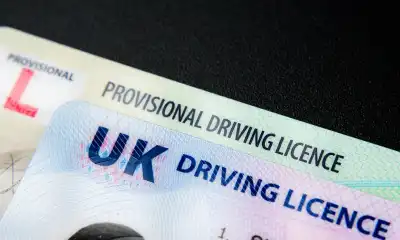
Once you have your car insurance policy up and running, do you know what you're expected to tell your insurer and when?
We've compiled this handy guide of information you may need to tell your insurer during your policy term. This list is everything we ask our customers to tell us; if you're insured with another company, the things you need to tell them and when may vary.
If you're unsure whether to tell your insurer something, you should ring them.
Things You Need to Tell Your Insurer Immediately
You Have an Accident
If you're unlucky enough to be involved in an incident, no matter how big or small, you must inform your insurer. Even if you aren't planning on making a claim, the third party might, so they need to have your version of events. They also need to know about anything that could affect the condition or value of your car.
You Sell Your Car
You need to let your insurer know if you're no longer the registered keeper of the car to avoid being liable for anything that happens to it and to prevent invalidating the new owner's insurance.
You Change Your Address
Where you keep your car is very important. Certain areas are considered high risk for car crime and accidents, which insurers take into account when setting your policy. You need to let them know when you change your address so they can contact you and send your renewal documents to the right place. The same goes for your email address.
You Change Where Your Car is Parked at Night
If you usually park your car on the drive but now need to keep it on the street (or vice versa), you need to inform your insurer just in case something happens.
You Change Your Annual Mileage
If you originally declared an annual mileage of up to 5,000 but find yourself driving much more, you must inform your insurer immediately. Underestimating mileage could invalidate your policy.
Your or Your Named Driver’s Circumstances Change
You'll need to update your insurer if your name, occupation, or country of residence changes.
Your Driving Licence Status Changes
If you or a named driver experience a change in licence status (e.g., revocation, suspension, or a driving ban), insurers must be informed immediately. Failing to do so could lead to policy invalidation.
The Registered Keeper of the Car Changes
The registered keeper of the car isn’t necessarily the owner—it’s whoever is named on the DVLA V5C registration certificate. If you aren’t the registered keeper and aren’t the main driver, check to ensure you’re covered to drive the vehicle.
Things You Need to Tell Your Insurer Before You Do Them
Modify Your Car
This doesn’t just mean adding a spoiler to your BMW—it includes resprays, cosmetic changes, and performance modifications. Some insurers won’t cover certain modifications, and others may increase your premium.
Change Your Car
If you plan to switch vehicles, check with your insurer first. A different car could mean a different price, and younger drivers might not be able to insure high-powered vehicles.
Change the Use of Your Car
If you start using your car for business but had previously declared it for social or commuting purposes, insurers need to know. Certain types of use might not be covered under your current policy.
Let Someone Else Drive Your Car
If someone will be driving your car, even occasionally, they need to be added as a named driver before they start driving to ensure coverage.
Change the Car’s Registration Plate
If you get a new number plate, inform your insurer to avoid being flagged as uninsured by the police.
Things You Need to Tell Your Insurer at Renewal
Penalty Points
If you or a named driver receive a fixed penalty or motoring conviction, inform your insurer at renewal. However, if you’re banned from driving, you must inform them immediately, as they may need to cancel your policy.
Any Claims
Insurers must be notified of any claims (fault or non-fault) from the previous year, even if they were made with another insurer.
Changes to Your Policy Information
If any details on your Motor Renewal Confirmation Form have changed since last year, update your insurer to ensure your coverage remains valid.
Unspent or Newly Spent Convictions
If you or a named driver have an unspent non-motoring conviction, it must be disclosed at renewal.
What You Don’t Need to Tell Your Insurer
Minor Repairs
If you’ve had a small scratch or dent repaired privately without claiming on your insurance, there’s usually no need to notify your provider.
Penalty Points That Have Expired
Points remain on your licence for a set period, usually four years. Once they’ve expired, you no longer need to declare them when renewing or switching insurers.
Named Driver Using the Car More Frequently
If a named driver starts using the car more regularly but the main driver remains unchanged, you typically don’t need to update your policy. However, if the named driver effectively becomes the main driver, this could be considered ‘fronting’—a form of insurance fraud.
Final Thoughts
When in doubt, check your policy documents or contact your insurer. Being transparent can save you from complications later, ensuring you’re fully covered when it matters most. Always err on the side of caution—if something could affect your risk level, it’s worth disclosing.




